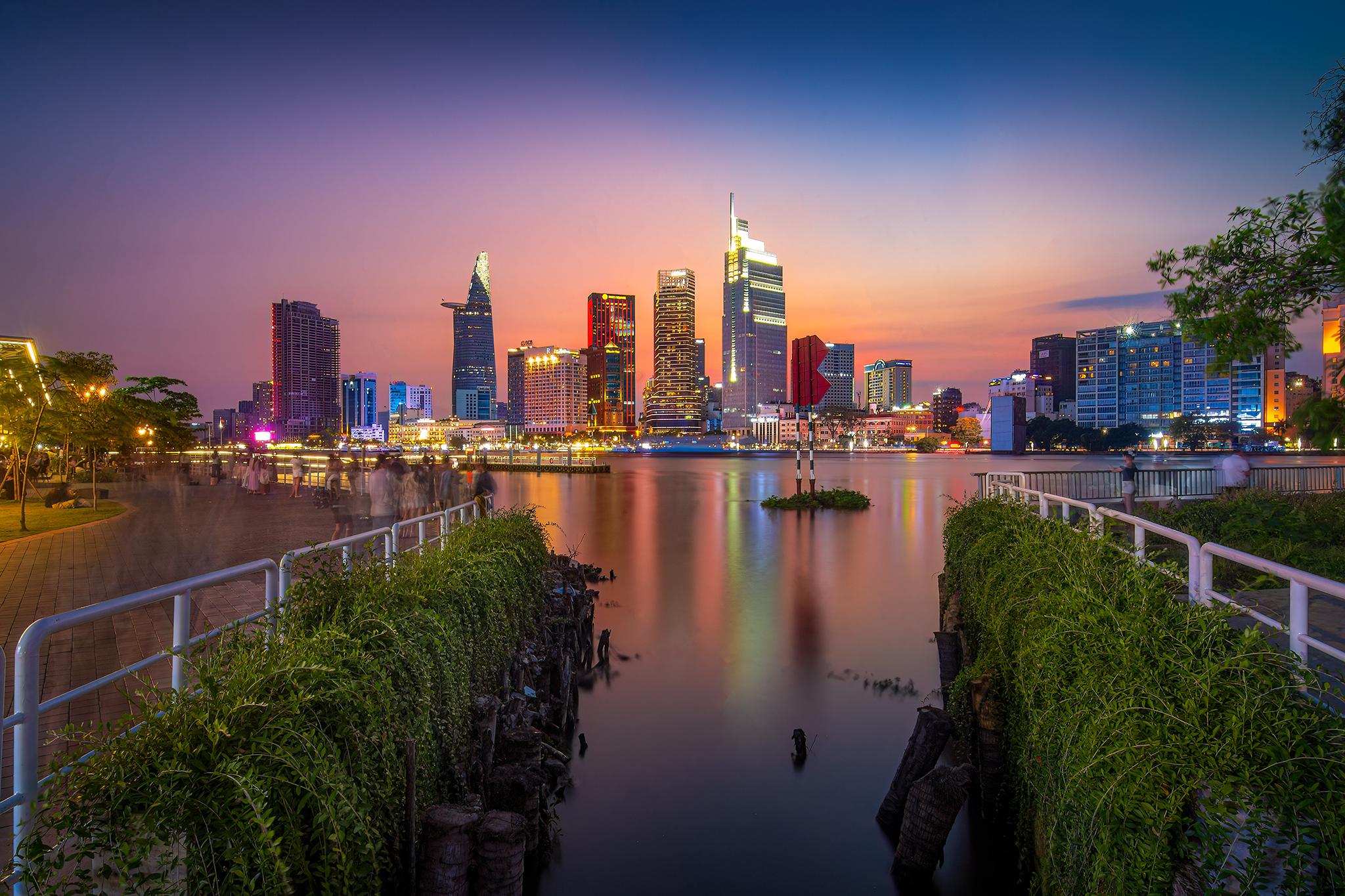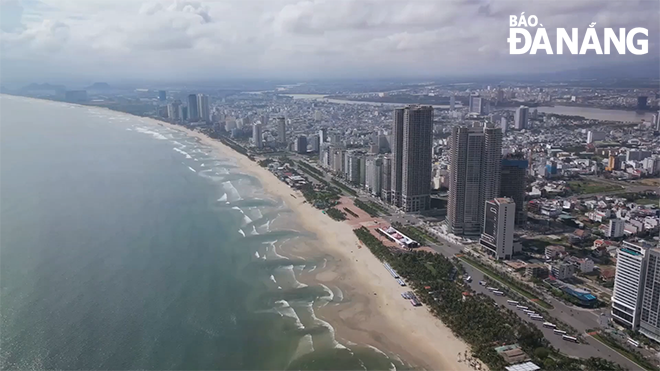Challenges for the development of homestay tourism
The term ‘homestay’ is used to mean a local family hosting tourists in their homes for a few days or perhaps longer. It offers tourists an up-close opportunity to experience rustic life and gain a better appreciation of the cultural differences between the lives of the visitors and the locals.
| Visitors near the Tich Thien Duong ancient house in Hoa Vang District’s Hoa Nhon Commune |
Over recent years, homestays have become increasingly attractive to visitors, especially young ones, and Da Nang is seeing an increasing number of visitors choosing this type of service rather than luxury hotels or resorts.
According to the latest statistics from the municipal Department of Tourism, there are now a total of around 21 homestay establishments, providing 343 rooms, in the city. Most of them are operated by local residents, and their guests are mainly independent travellers.
Ms Nguyen Thi Quyen, owner of the ‘Vitamin Sea’ homestay on Thach Lam, Son Tra District, said that some of the city’s neighbouring localities such as Thua Thien-Hue Province, Hoi An and Da Lat, boast favourable geographical positions amongst mountains and rivers. Therefore, these localities find it easier than Da Nang to develop this new and special type of tourism, as well as to organise exciting outdoor activities for the visitors.
In Hoi An, for example, local homestay providers offer guests the chance to visit craft villages such as Tra Que Vegetable Village and Thanh Ha Pottery Village and therefore attract many visitors.
By contrast, the visitors to Da Nang usually like the local beaches, but many of the city’s homestay providers have not yet thought to organise beach-related activities, such as near-shore fishing, or evening activities.
Mr Trinh Bang Sy, Director of the Phuong Dong Viet Tourism Centre, said that this type of service is becoming more popular with young visitors from both home and abroad. He suggested it should be encouraged in Hoa Vang District where visitors would have many opportunities to experience the rural life of residents.
The Deputy Director of the municipal Tourism Department, Mr Nguyen Xuan Binh, noted that his unit is conducting surveys of some attractions in the district’s Hoa Bac and Hoa Phu communes, as well as cooperating with neighbouring localities to develop more homestay-related tourism products.




